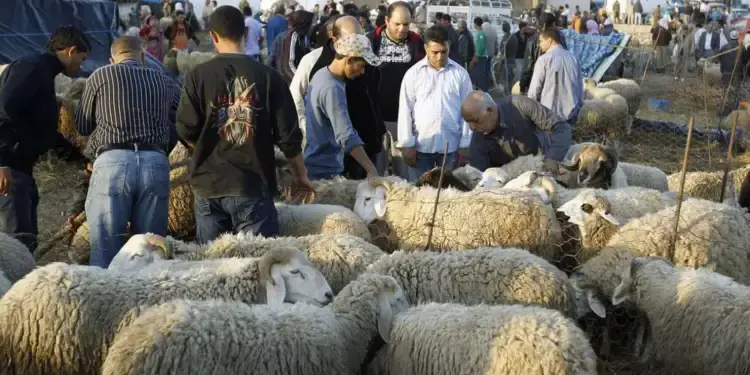As Eid Al-Adha approaches, Tunisians are faced with a sharp increase in sheep prices. The price per kilo is negotiated between 50 and 60 dinars, which brings the average cost of a lamb to around 1,000 dinars.
This prices outbreak is fueled by a significant drop in the national herd, while imports of ovine meat, mainly from Romania at a price of 38.2 dinars/kg, are not enough to regulate the local market. The president of the Tunisian farmers’ union, Dhaoui Midani, alerts to this situation and offers a long -term solution: reviving local production by importing reproductive females to reconstruct the herd, instead of depending on the last -minute solutions.
Meanwhile, Algeria adopts a more proactive approach by authorizing the importation of living lambs from Spain. This decision follows a decrease in Spanish exports to Morocco, where King Mohammed VI made the decision not to celebrate Eid, calling citizens in solidarity with the most deprived. The price of lambs in Morocco then reached heights, exceeding 6,000 dirhams, or about 4,800 Tunisian dinars, which led to a fall in demand for sheep.
Algeria, by seizing this opportunity, has authorized the entry of Spanish sheep, thus offering Algerian consumers a more controlled price. The price of lambs in Algeria is thus capped at 40,000 Algerian dinars (around 900 Tunisian dinars). This measure aims to regulate the market while supporting Spanish breeders in difficulty.
For their part, the Tunisian markets continue to see high prices. Indeed, lambs (Alouch) are offered between 600 and 800 dinars, adult sheep (barkoussa) between 900 and 1,400 dinars, rams (kabch) between 1,100 and 1,600 dinars, and young sheep (Berchni) between 250 and 500 dinars. These price fluctuations are accentuated by growing demand, especially as Eid Festival approaches.
While Algeria takes action to regulate its market and Morocco opts for a strong social decision, Tunisia seems to be in uncertainty. Prices continue to increase, testing the purchasing power of Tunisians, and sustainable solutions are still vague.








